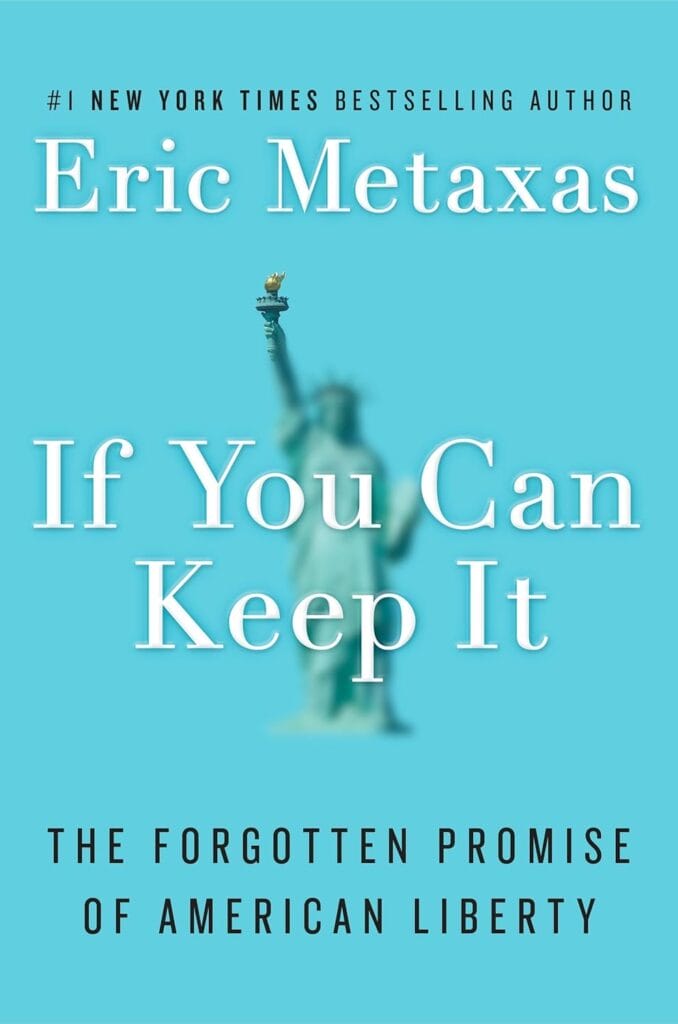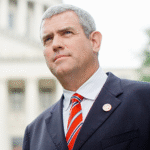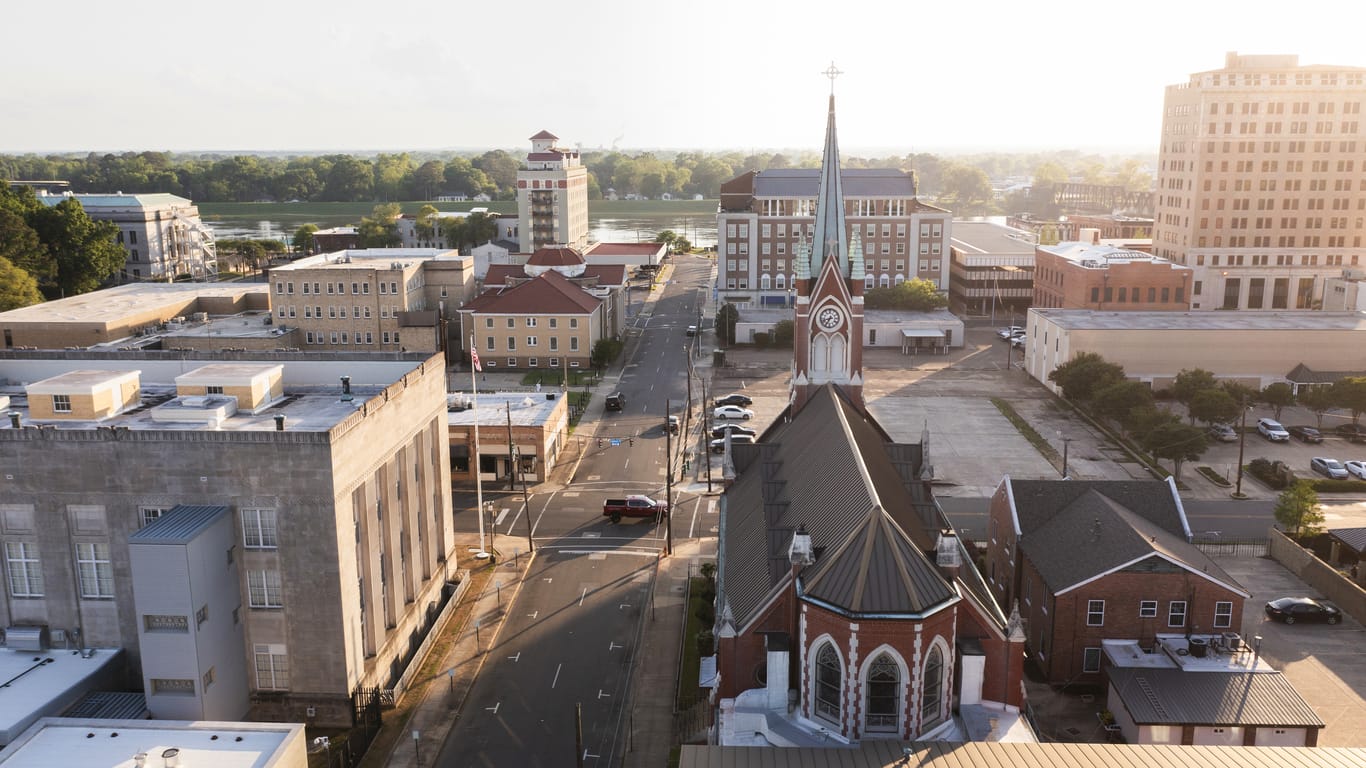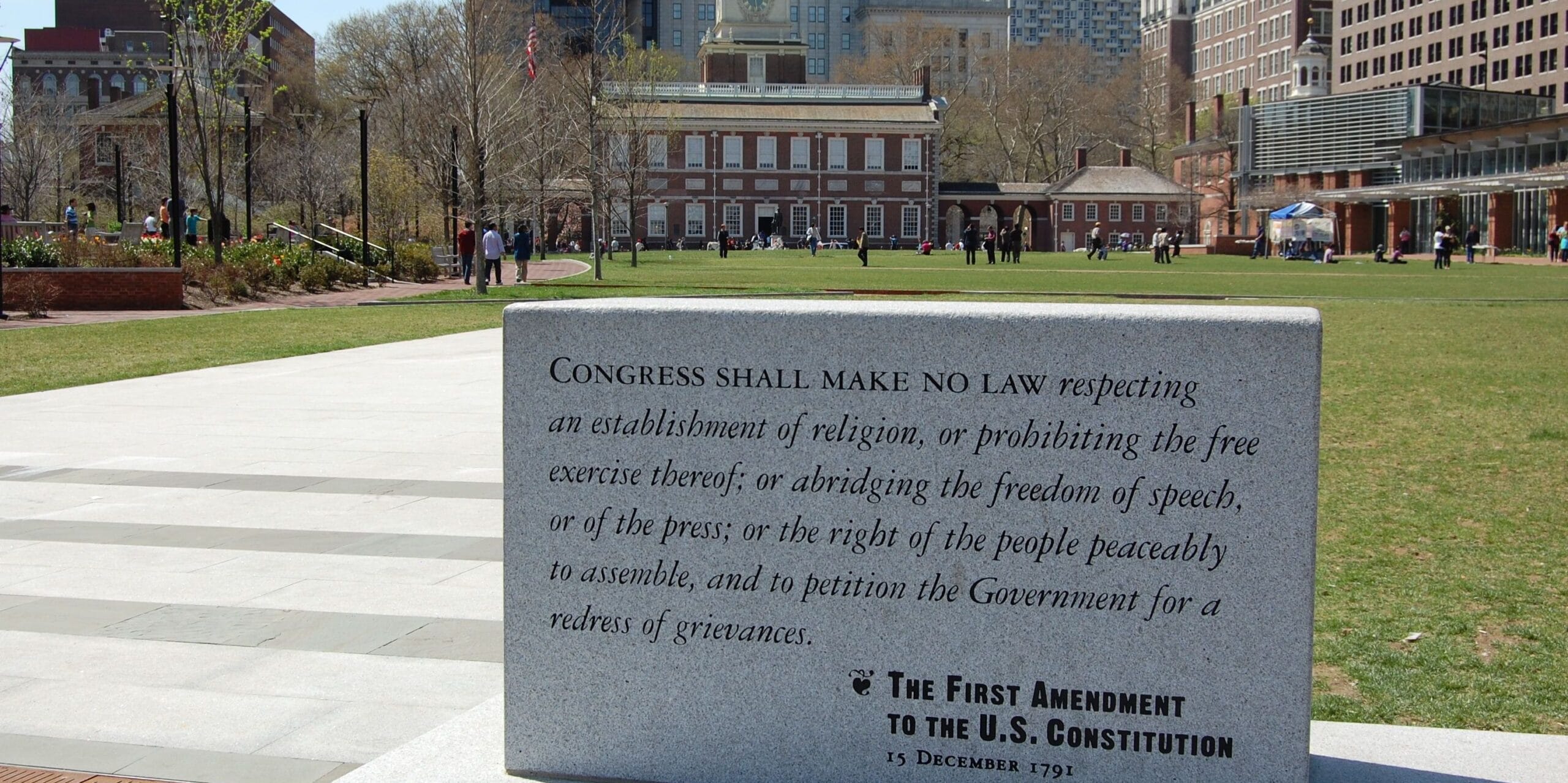Learning from Mississippi: Philip Gunn on religious liberty

Philip Gunn served as Speaker of the Mississippi House of Representatives from 2012 to 2024, becoming the first Republican to hold the position in more than a century. During his tenure, he championed education reform, tax relief, right to life legislation, and religious liberty protections, helping to reshape Mississippi’s political landscape. A lawyer and longtime public servant, Gunn is also known for his commitment to civic life and his deep involvement in his local church. He recently spoke with American Habits Editor Ray Nothstine.
Looking back a decade, what motivated you to make religious liberty a priority during your time as Speaker in Mississippi?
Philip Gunn: Religious liberty has always been an integral part of America’s founding. Even leaders who weren’t professing Christians, such as Thomas Jefferson or Benjamin Franklin, acknowledged a Creator. The earliest settlers came to this country in search of religious freedom. It is woven into our nation’s fabric and must be protected.
I once heard Dr. Al Mohler, a personal hero of mine, explain that there are only two possible sources for human rights: either they come from God or from man. If rights are given by man, they can be changed or revoked by governments. That makes them privileges, not true rights. Only God can grant rights that are enduring and unchanging. From that understanding flows the belief in human dignity and the sanctity of life. For example, protecting the unborn is rooted in the conviction that God is the author and sustainer of life, and therefore every life is sacred.
Unfortunately, these rights are increasingly under attack. Our culture often seeks to dictate which rights we may exercise, where religious expression can occur, or whether prayer and faith have a place in public life. Across the country, we’ve seen religious freedoms encroached upon or denied.
In Mississippi, however, we hold these freedoms dear. Studies consistently show we are the most religious state in the country, as well as the most generous on a per-capita basis. That is something I am proud of as a believer. During my time as Speaker, I felt it was my duty to safeguard these freedoms through legislation.
We did this primarily through two measures. First, the Religious Freedom Restoration Act (RFRA), which affirms the right to live out one’s faith without undue government interference. Second, House Bill 1523, which protects Christians who operate their businesses according to their convictions, particularly regarding marriage as the union of one man and one woman. Around the nation, bakers, florists, and photographers have faced lawsuits for declining to participate in same-sex wedding ceremonies. HB 1523 ensures that in Mississippi, the government cannot punish people for holding to that traditional view of marriage.
These efforts demonstrate Mississippi’s commitment to preserving religious liberty.
Some people assume religious liberty is just the federal government’s responsibility. But what role do state legislatures and other state officials play in protecting it?
Gunn: I believe the states are vital. They are ground zero. The founders wanted a system where states retained most of the power, with the federal government limited only to those areas states could not provide for themselves. In fact, they originally created a federal government so weak that it couldn’t function effectively and later had to strengthen it. Over time, however, the federal government has steadily usurped much of the authority intended for the states.
Both the federal and state governments have a responsibility to protect rights given by our Creator. When the federal government exceeds its proper role, states must step in and push back. A clear example is the overturning of Roe v. Wade. In 1973, the Supreme Court took authority that belonged to the states. The 2022 decision corrected that by returning the issue to where it belonged.
We see similar dynamics in areas like marriage, divorce, and voting. There is no federal standard to vote, each state designs its own system. The same is true of marriage and divorce, where states set the conditions for entering or dissolving a marriage. That’s how our system was designed, and religious freedom is no different. States should have a strong voice in shaping how these rights are protected within their borders.
If rights are given by man, they can be changed or revoked by governments.
At the same time, if a state goes too far and restricts fundamental freedoms, the federal government has a duty to step in. Protecting religious liberty is one of the highest privileges we enjoy as Americans, and one of the things that sets us apart from every other nation in history. It must be defended with everything we have.
You mentioned the Religious Freedom Restoration Act earlier. At the time, Mississippi—and other states—faced a lot of criticism, with some saying such laws were just “codes” for discrimination or bigotry. In some states, major corporations even threatened to leave. What do you remember about the backlash Mississippi faced, and how did you experience that period?
Gunn: One of the advantages we have in Mississippi, as I mentioned earlier, is that we are considered one of the most religious states in the nation. That creates an environment where respect for worship and the preservation of religious rights are highly valued. Of course, not everyone here shares the same beliefs or identifies as a Christian, but there is a broad appreciation for the freedom to worship as one chooses.
When we advanced the Religious Freedom Restoration Act, I believe most citizens strongly supported it. As elected officials, we must remember that we represent the people—not corporations. Some national companies that weren’t headquartered here expressed concerns, but overall, the public stood with us.
Mississippi was one of the first states to act on this issue, and in some ways we caught opponents off guard. Later, when other states tried to pass similar legislation, they faced tremendous controversy and backlash. I spoke with fellow speakers around the country who had a much tougher time moving those bills forward.
In Mississippi, though, I don’t recall significant difficulty in passing our bill. Yes, there were questions and concerns raised, but so many legislators supported protecting religious freedom. I was simply privileged to help lead the effort and see it across the finish line.
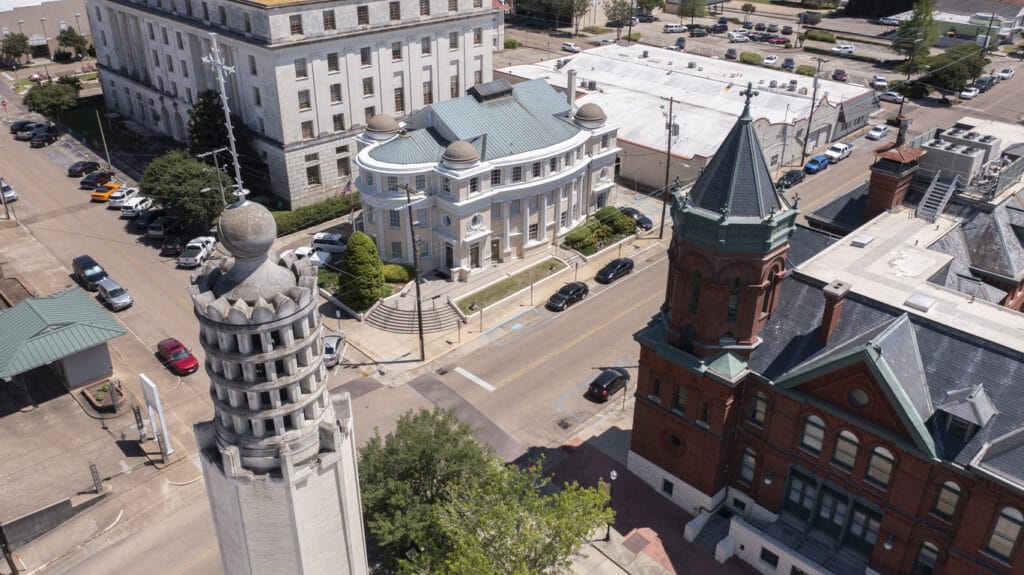
Related to that as well, I imagine you understand given your own faith and worldview, that that more laws don’t automatically mean an improvement in society. In fact, culture and the will of the people often move ahead of the law. How should we think about the need for religious liberty protections while also encouraging a culture of simply being better neighbors — respecting each other’s conscience without compulsion?
Gunn: The very fact that we’ve seen increasing attacks on religious liberty shows why government has a duty to protect those rights. As I said earlier, rights come from God, not man. Government doesn’t create them—it safeguards them.
As Christians, our role is rooted in Christ’s two greatest commands: to love God and to love our neighbor. Because we love God, we want to follow His commands. And because we love our neighbor, we care about the culture and environment in which people live. That means working to create a society that promotes dignity, order, and human flourishing.
This plays out in many areas. We care about crime and laws that restrain wrongdoers because safety benefits our neighbors. We care about what is taught in schools, opposing ideologies that elevate one group over another. We care about the sanctity of marriage and the way God designed family, because strong families benefit children and society. We care about protecting girls in sports and ensuring privacy in bathrooms. We care about preventing minors from undergoing irreversible medical procedures.
In each of these cases, government has a role to step in and set boundaries that serve the good of society. Loving our neighbors means shaping laws and culture in ways that protect them, strengthen families, and allow communities to thrive. That, I believe, is how Christians live out both commandments while supporting the government’s responsibility to uphold fundamental rights.
Broadly speaking, what do you wish more Americans understood about religious liberty? Do you think our lack of civic formation as a nation is a big part of the problem today?
Gunn: I think one of our biggest failures has been not teaching or understanding the true founding of our country and why it mattered so deeply to the founders. They had lived under regimes where free speech was suppressed, where criticizing the king could bring severe punishment. They wanted a nation where people could speak their minds, publish freely, and worship God without fear. Those freedoms became foundational to America, and they are part of what makes this the greatest country in history.
As Eric Metaxas points out in “If You Can Keep It,” self-government was virtually unheard of before America. Most of the world was ruled by monarchs or empires. The founders’ “American experiment” depended on citizens who would govern themselves responsibly. They believed religious conviction provided that moral framework. If people followed God’s commands, don’t murder, don’t steal, don’t lie, then society had a natural order that prevented chaos.
The danger comes when a society drifts away from those religious moorings. Without that foundation, everyone does “what is right in his own eyes,” as Scripture says, and the result is disorder. I think we see elements of that today as culture increasingly pushes values that conflict with religious belief. That is why we need protections like the Religious Freedom Restoration Act and House Bill 1523. They serve as guardrails to ensure that religious convictions—which once helped anchor our democracy—are not silenced or trampled.
As a former Mississippi resident and Ole Miss student, one of the things I’ve always missed about Mississippi is the people. I remember once receiving a check that was mistakenly delivered two counties away. An older gentleman, he didn’t know me, drove his beat-up pick up all the way to my apartment just to return it. That kind of kindness seems more common in Mississippi than in many other places.
Mississippi sometimes gets a bad rap in the national media, but those of us who’ve lived there know there’s more to the story. What do you think people across the country could learn from Mississippi and its people?
Gunn: Yes, we have our challenges in Mississippi, but we’ve also made tremendous progress. Our education system has improved dramatically, moving from 50th in the nation to as high as 16th in recent rankings. We’ve also created a business-friendly environment with right-to-work laws, a favorable tax structure, and a path to eliminate the personal income tax.
But what truly defines Mississippi is its people. There’s a culture here of caring for your neighbor, rooted in the belief that every life has dignity and value, regardless of race, status, or background. You see it when Mississippians rally after hurricanes and tornadoes, when neighbors rush to help after an ice storm, or when strangers are welcomed into tailgate tents at Ole Miss.
I’ve brought friends from other states to football games, including the Speaker of Indiana. Even though he wore his team’s colors, people stopped him, welcomed him to Mississippi, and invited him into their tents to eat with them. That’s the kind of hospitality you find here where strangers are welcomed like family.
It’s the same spirit that draws people to stay. A man in my own Sunday school class recently moved here from California after visiting his son. He loved Mississippi so much that he decided to make it home. Stories like his are common, people come here expecting to visit but end up staying because of the people.
That’s my message: don’t judge Mississippi by headlines or stereotypes. Come and see for yourself. You’ll find some of the most welcoming, generous people anywhere.
